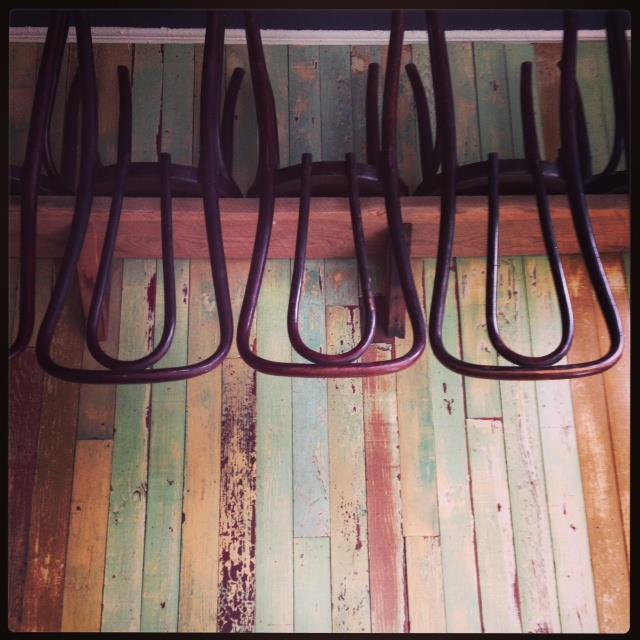
As if the long-awaited reopening of Bottega on Oct. 31 wasn’t enough reason to rejoice, this week owner Adrien Aeschliman revealed his plans that, on Jan. 14, he’ll open a new French bistro set inside the former Red Parrot Asian Bistro space in Station North.
The new spot is called Colette. (“I just like the way the name sounded,” he explains.)
Colette’s chef will be Stefano Porcile, formerly of Fork & Wrench and Woodberry Kitchen. While rumor had it that Bottega had closed in order to move down I-83 to Hampden, Aeschliman says that was not the case.
“The whole idea was to give me time to plan something else,” he says, “and then reopen Bottega once the other spot got going.”
While Aeschliman’s plans fell through, he took a six-month break to retool Bottega’s menu and find another space to expand his brand.
“It definitely took me longer to get Bottega back up and running than I thought it would,” he says. (It was worth the wait—a recent visit proved that Bottega is better than ever.)
After securing the space next to Tapas Teatro on Charles Street, just last week the Swiss-American restaurateur decided that his new focus would be France.
Picking a country was a toss-up, too.
“I think French bistro-style food is always comforting and easy to sell,” he says. “It was either that or Thai, but I couldn’t find someone who could execute the menu, so last week, I decided what direction I was going in. I spent three years living in Avignon, so it’s not that far-fetched.”
With 80 seats, Colette will be four times the size of baby-sized Bottega. “It’s going to be a lot more polished,” he says, “with a granite bar, black wood chair rails, and bar that seats about 30 in the front.”
To date, the restaurateur is working out the menu. But regardless of the type of cuisine, Aeschliman, known for his knack of making simple ingredients sing, says his goal is to “find good ingredients and not overdevelop them,” he says. “I’m also going to look back at tradition.”
